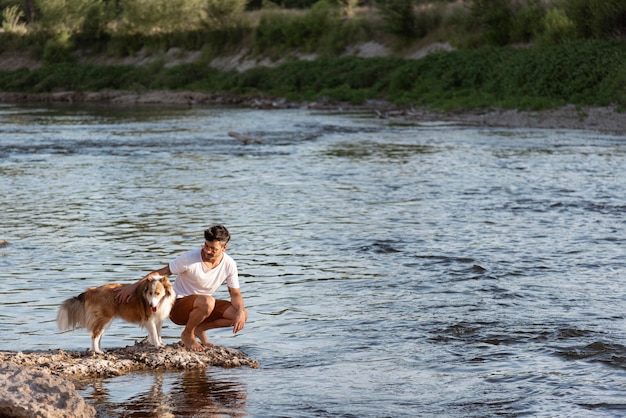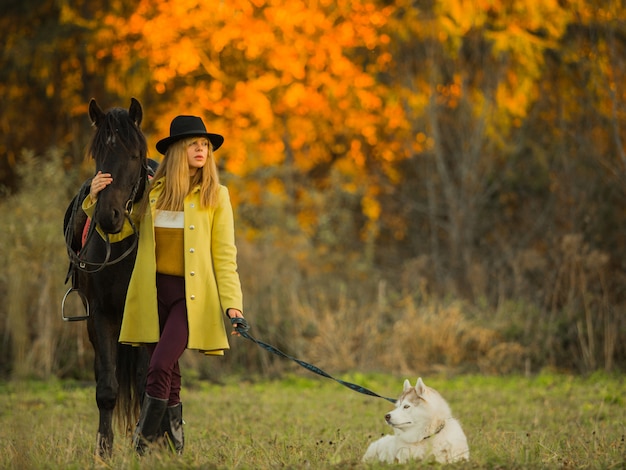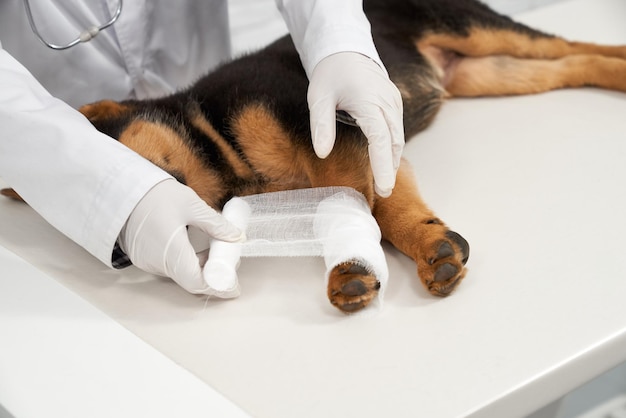Protecting Horses and Pets from Drought Stress in Kentucky


Protecting Horses and Pets from Drought Stress in Kentucky
Hot, dry summer weather can catch pet and horse owners off guard, especially here in Kentucky where sudden drought conditions may bring new challenges to animal health. If you are worried about how these weather shifts might affect your dogs, cats, horses, or even exotic pets, you are not alone. At Green Tree Animal Hospital, our veterinary professionals in Lexington, KY understand the unique needs of animals facing heat and water scarcity, and we are here to help you keep your animals safe and healthy when the temperatures soar.
This guide will explain how drought stress can impact horses and pets in Kentucky, what signs to watch for, and—most importantly—how you can prevent dehydration and heat-related illness in your animals. You will learn practical strategies for pet drought stress prevention, discover how to prevent dehydration in horses in Kentucky, and understand when it is time to reach out for veterinary help. We will also cover actionable advice for pet owners in Lexington and surrounding communities, ensuring your animals receive the comprehensive care they deserve. If you ever have concerns about your pet’s health during extreme weather, our team of veterinarians is ready to support you with wellness plans for preventive pet care, advanced diagnostics, and ongoing guidance.
Recognizing Drought Stress and Dehydration in Kentucky Animals
Drought stress is a serious risk for both household pets and horses, especially during Kentucky’s hotter, drier months. Recognizing the early signs of trouble can be the difference between a quick recovery and a medical emergency.
For dogs and cats, symptoms of dehydration often include lethargy, dry gums, sunken eyes, and a loss of skin elasticity. You may also notice that your pet is panting more than usual, seems weak, or refuses to eat and drink. Horses experiencing drought stress often display signs such as dullness, reduced appetite, dry mucous membranes, infrequent urination, or dark-colored urine. Severe dehydration in horses can also cause colic, sunken eyes, and a noticeable loss of skin elasticity when you gently pinch the skin on their neck.
Other animals, including exotics and livestock, may show more subtle warning signs. For example, birds may appear fluffed up and less active, while reptiles can become lethargic and lose weight rapidly. If you notice any of these symptoms in your animals, it is vital to act quickly—drought stress can progress rapidly, especially in young, elderly, or immunocompromised pets.
Why Do Kentucky’s Pets and Horses Experience Drought Stress?
Understanding the causes of drought stress is key to prevention. Kentucky’s weather can shift quickly, and periods of low rainfall often lead to decreased water availability and higher ambient temperatures. These environmental changes increase the risk of dehydration and heat stress for animals, both indoors and outdoors.
Horses in Kentucky face unique challenges during droughts. Dry pastures mean less moisture in their diet, while increased dust can irritate their airways and make breathing harder. Water sources may become limited or contaminated, and horses working or exercising in the heat lose moisture rapidly through sweat.
Household pets may also struggle. Dogs and cats left outdoors are at higher risk, but even indoor pets can become dehydrated if air conditioning fails or water bowls are not replenished regularly. Exotic pets, such as reptiles and birds, often require specific humidity levels and can become sick quickly if their needs are not met during droughts.
It is worth noting that animals with pre-existing health conditions, such as kidney disease or heart problems, may be especially vulnerable. Our veterinary professionals at Green Tree Animal Hospital recommend that pet owners in Lexington and surrounding communities pay close attention to their animals’ environment, as drought-related risks can escalate faster than many realize.
Professional Veterinary Treatment for Drought Stress
If you suspect your pet or horse is experiencing dehydration or heat-related illness, prompt veterinary care is critical. Treatment for pet drought stress and dehydration in horses in Kentucky is tailored to the severity of symptoms and the animal’s overall health status.
For mild dehydration, rehydration may involve oral fluids and monitoring. However, moderate to severe cases often require intravenous fluids, electrolyte supplementation, and close observation by a veterinary team. Horses suffering from advanced dehydration may need more intensive interventions, such as IV fluids, gastrointestinal support, and cooling therapies.
Veterinary professionals will also assess for complications that can arise from drought stress, such as kidney injury, heatstroke, and secondary infections. Bloodwork, urinalysis, and other diagnostics may be necessary to evaluate organ function and rule out underlying conditions.
At Green Tree Animal Hospital, we offer comprehensive veterinary services for pets and horses, including advanced internal medicine services for pet health management. Our approach ensures that animals in Lexington and surrounding communities receive targeted care based on their specific needs, whether they are recovering from mild dehydration or require hospitalization for more severe illness.
How to Prevent Drought Stress and Dehydration at Home
Prevention is always preferable to treatment, and there are several proactive steps you can take to protect your animals during Kentucky’s dry spells. For pet drought stress prevention, it is essential to provide constant access to clean, fresh water for all species. In hot weather, water bowls should be checked and refilled multiple times per day, and outdoor water sources for horses should be monitored for cleanliness and capacity.
Providing adequate shade and shelter is another key strategy. Dogs, cats, and horses all benefit from shaded areas to escape the sun’s intensity. If possible, encourage pets to remain indoors during the hottest parts of the day, and exercise horses early in the morning or late in the evening when temperatures are lower.
A balanced diet is critical for hydration, especially for horses in Kentucky. Forage with higher moisture content, such as fresh pasture or soaked hay, can help maintain hydration levels even when rainfall is scarce. For dogs, cats, and exotics, consider incorporating wet food or fresh fruits and vegetables (when safe and appropriate for the species) to supplement fluid intake.
Environmental management is important for all animals. For reptiles and birds, maintaining proper humidity through misting or humidifiers is vital during drought periods. Regularly clean and disinfect water containers to prevent bacterial growth, and ensure all animals have access to cool, well-ventilated spaces.
Routine veterinary checkups are a cornerstone of prevention. Scheduling a wellness examination with our veterinary team in Lexington allows us to identify animals at higher risk for heat and dehydration issues and develop a personalized plan for your household or farm. Our wellness plans for preventive pet care are designed to support ongoing health, especially during challenging weather.
When to Seek Veterinary Care for Drought Stress
Knowing when to call your veterinarian can save your animal’s life. If your pet or horse is not eating or drinking, appears weak or unresponsive, has difficulty breathing, or shows signs of heatstroke such as vomiting, diarrhea, or collapse, immediate veterinary attention is necessary. Horses with colic symptoms, such as rolling, pawing, or looking at their sides, require urgent assessment.
Animals with underlying health issues should be monitored closely, as even mild dehydration can quickly become dangerous. Do not wait for symptoms to worsen; reaching out to a veterinary professional at the first sign of trouble ensures your animal receives the help they need promptly.
Our team at Green Tree Animal Hospital in Lexington, KY is dedicated to providing comprehensive veterinary services near you. Whether you need an urgent appointment or want to discuss preventive strategies, we are here to support your animals through every season. If you are searching online for a "vet near me" or "quality veterinary services near me," know that our compassionate veterinary professionals are committed to protecting your pets and horses from Kentucky’s unpredictable weather.
Keeping Kentucky’s Pets and Horses Healthy Through Drought
Extreme weather brings unique challenges, but with proactive care and a trusted veterinary partner, your pets and horses can thrive even in difficult conditions. By staying vigilant for signs of dehydration, making smart adjustments to your animals’ routines, and scheduling regular checkups with our veterinary team, you can rest assured your animals are protected.
Green Tree Animal Hospital is proud to serve Lexington and surrounding communities with a full range of services—from wellness plans for preventive pet care to internal medicine services for pet health management. If you have concerns about pet drought stress prevention, need help to prevent dehydration in horses in Kentucky, or simply want guidance on the best strategies for your animals, we invite you to schedule an appointment with our veterinarians.
Contact us today at (859) 223-2221 or visit our location at 4371 Old Harrodsburg Road, Suite 140, Lexington, KY 40513. Our veterinary professionals are here to ensure your pets and horses receive the best care possible, both in routine times and during Kentucky’s most challenging weather.
If you are looking for a "vet near me" who truly understands local drought risks, Green Tree Animal Hospital is your partner in pet and horse health. Schedule your next appointment and discover why so many families in Lexington trust our team for all their veterinary needs.
This article is for informational purposes only and does not replace professional veterinary advice. Please consult with your veterinarian for specific recommendations tailored to your animal’s needs. For additional local weather information and drought resources, visit the Kentucky Mesonet or National Weather Service Louisville.






_corporate_logo-1920w.webp)
















